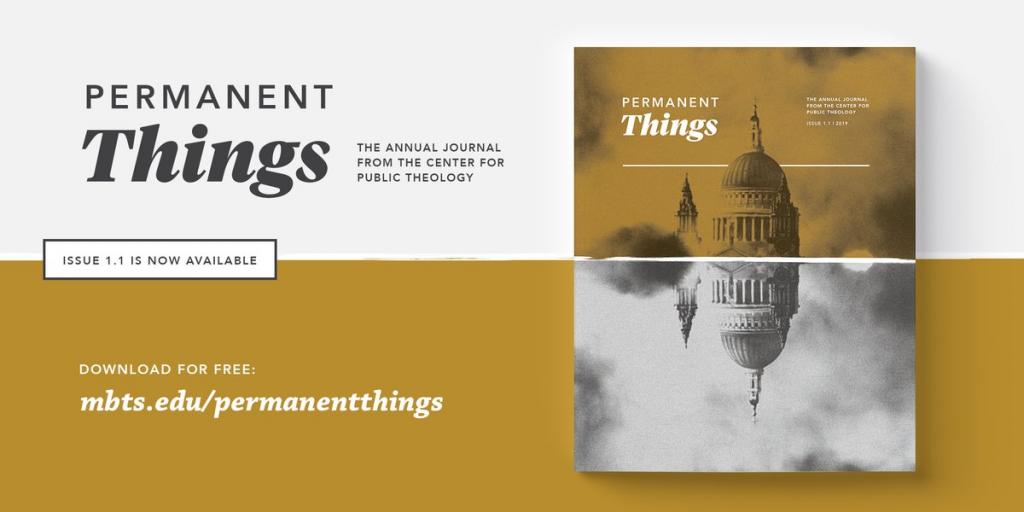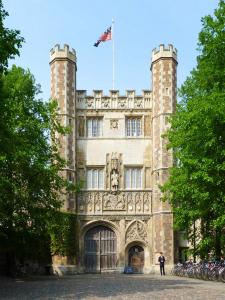
The training of pastors has changed a great deal over the years. Here’s a quick narratival arc for you: once pastors were the best-educated members of their community (17th and 18th centuries in America), then the pastorate broke from formal education (19th and 20 centuries), and now many pastors are reclaiming the former model (in the 21st century). They were told they didn’t need training, they didn’t need “book learning,” they just needed a warm heart and a good church-growth model. But many have launched into the pastorate and learned that they need more, much more. They need to see themselves as a theologian.
Pastors do not need to do a PhD. But coming behind an MDiv, a PhD can be part of what sharpens and grows and theologically strengthens a pastor. In what follows, let me give three reasons why a pastor should think about doing a PhD. At the end, I list the schedule for the Midwestern Seminary Residency program. I lead this program, which gathers PhD students on a weekly basis for learning, fellowship, and sharpening. The Residency is geared both to future scholars and ministers, not one or the other–and yet I’m frequently asked about pastors and PhDs (hence the blog angle). I would encourage you to think about moving to Kansas City to be a part of this program–if you wonder if it’s worth all the investment, look at the guests you’ll get to engage and talk with each week. It’s a murderer’s row of faithful evangelical leaders! (See the photo at left of our time with Dr. Steven Lawson, for example.)
First, pastors should do a PhD to enjoy God. This sounds strange, I know. We evangelicals–we Americans more broadly–are a pragmatic people. We want the cost-benefit analysis, STAT. But I believe the first reason pastors should do a PhD is to know the Lord more deeply. This isn’t ad copy. I really do think we should strive by the power of the Spirit to love the Lord [our] God with all [our] heart, soul, mind, and strength. I don’t take Matthew 22:37 lightly, in other words; I think this is a practical text, much more practical than we might commonly view it. By this I mean that believers should take whatever practical step they can to love God more. In terms of loving God with your mind, I can think of few undertakings more valuable and more meaningful in this sense than a PhD. It’s an extended exercise in thinking, and in a seminary context like Midwestern’s, thinking coram deo–“unto God.” I don’t know about you, but I love thinking unto God.
What I’m trying to say here is this: thinking unto God is inherently valuable. It needs no justification. It doesn’t require 10 bullet points and a budget line in the black to make perfect sense. If someone wants to think unto God, I am here to encourage them, not discourage them. Do it. Think better. Think more deeply. Think more faithfully. Friend, your mind was given you by God. It was fashioned by Him, and it is most alive when you are thinking God’s thoughts after Him. Like your affections, like your body, your mind was not designed for secular pleasures or endeavors, but for divine things. Forget the pragmatic argument; forget the cost-benefit analysis; do a PhD out of a sense of intellectual exhilaration. Will the degree be challenging? Yes. Will it push you, perhaps even to your limits? Yes. Will it be worth it due to the enjoyment you reap from thinking coram deo? Yes.
Second, pastors should do a PhD to hone the skill of “destroying arguments” (2 Cor. 10:4-5). Listen to the apostle Paul for a second: For the weapons of our warfare are not of the flesh but have divine power to destroy strongholds. We destroy arguments and every lofty opinion raised against the knowledge of God, and take every thought captive to obey Christ, being ready to punish every disobedience, when your obedience is complete (2 Corinthians 10:4–6). A PhD trains you in a given discipline to think with extreme care and great confidence from the Word of God. It helps you to emulate Paul and to “destroy arguments” that threaten to enslave the people of God. A Pauline ministry enters into warfare against lies. Doing a PhD will strengthen many men as they prepare for this holy work.
Both discipleship and evangelism require shrewd interrogation of unsound thoughts; evangelism in one sense is dismantling, piece by piece, a thought-system created to crowd out God. This is what Paul means by “strongholds.” The unbeliever builds castles of air, and thinks that he is safe from the wisdom of God. But the pastor, working as a theologian, knows this is not so. Further, when believers allow themselves to be lured away and take up residence in these fabricated “strongholds,” the pastor calls them back. All this is theological work grounded in the biblical text. A PhD at a school like Midwestern will help you do it, and do it well.
Third, pastors should do a PhD for the benefit of their church. Doing a PhD will sharpen you. You’ll read perhaps 70-100 books in your given field–Systematic Theology, New Testament, Biblical Theology, Historical Theology, and on it goes. Let me just stop there for a second: will reading that many books grow you? Yes, it definitely will. But on top of that, you’ll write 8-10 major papers on areas of Bible and theology. And then on top of that, you’ll write a 250-page dissertation establishing you as a specialist in your field. How can this not benefit your ministry of the Word? How can this not affect your ability to communicate? How can this not shore you up in biblical teaching?
Don’t misunderstand me: if your heart’s not in the right place, then you won’t get much out of the PhD. But if you are studying unto God in a Matthew 22 sense, I firmly believe that the congregation you serve will prosper under your strengthened theological leadership. The PhD helps you become a theologian, a theologian of the Word. If you can function in this way, you will be a better discipler, counselor, administrator, leader, strategic thinker, and preacher. That will only bless the sheep under your care. Will the PhD involve challenges? Yes, as noted above. But you’re not doing it for short-term gain. You’re doing it not for the good of the next two years, but for the good of the next four decades of ministry.
************
Toward that end, I invite you to consider the MBTS Residency. If you can’t move to Kansas City (or drive in from a few hours away as several current students do), you should definitely consider the MBTS PhD program, which is modular by design and geared to busy ministry workers. (It’s a fantastic and booming program.) But I am keen in my role as Residency Director to keep drawing excellent and faithful students who want mentorship, training, accountability, and fellowship. These students are preparing for both teaching ministry and pastoral ministry. Whatever your end goal, moving for education is a big deal, yes, but it is an investment. If you can come, I would encourage you to come (granted that your application is accepted). If you are training to be a heart surgeon, by all means move to Stanford University and get the best education you can. If you are training to be a Navy SEAL, by all means enter their intensive course before heading into battle. If you are preparing to lead a major company as a CEO, then definitely go to Wharton.
If you are entering the care of souls–the most important work on planet earth–then by all means, don’t get as little training as you can. Get as much education and preparation as you can.
Residency Schedule
Winter/Spring 2019
All dates on Wednesdays unless otherwise noted.
1/23 Dr. Strachan on “Destroying Arguments”
1/30 Dr. Chipman on Biblical Theology
2/6 Dr. Kostenberger on Gospel of John (attend his FTC workshop)
2/13 Dr. Ligon Duncan on Church & Academy
2/20 Dr. Allen on Theological Courage
2/27 Peter Williams on UK Leadership
3/6 Jeff Dodge on University Ministry
3/13 Spring Reading Days (not meeting)
3/20 Dr. Strachan on ETS submissions
3/27 Jared Wilson on Writing (FTC workshop)
4/3 Dr. Barrett on Theological Wisdom
4/10 Dr. Strachan
4/17 Easter Break (not meeting)
4/26 (Friday) Midwestern Colloquy (to be announced publicly soon)











